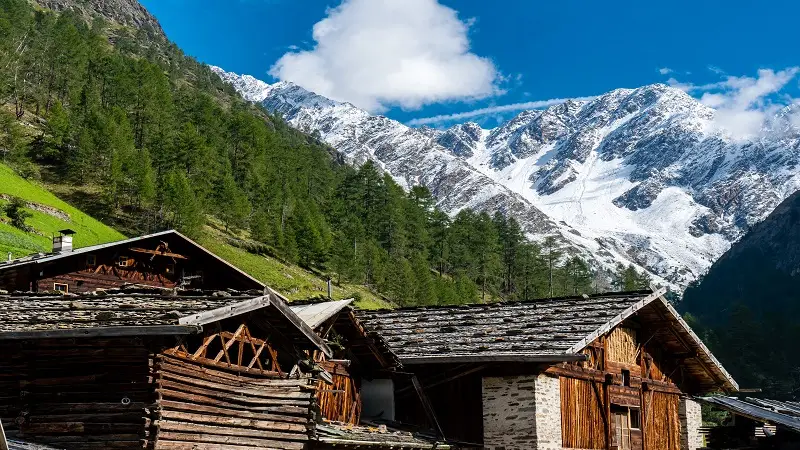Names often carry fascinating histories, linguistic quirks, and cultural significance. One such intriguing term is kársperski. Although it may look unusual to English readers, this word opens a doorway to stories of migration, heritage, and evolving identity. In this article, we will explore the origins of kársperski, its linguistic background, cultural associations, and its presence in modern society.
1. The Linguistic Roots of Kársperski
The spelling of kársperski immediately hints at a European origin, possibly Slavic. The accent on the “á” suggests influences from languages that use diacritics to mark vowel sounds, such as Icelandic or Hungarian, while the “-ski” ending is common in Polish, Czech, and other Slavic surnames. Historically, the suffix “-ski” or “-sky” is associated with noble or geographic surnames in Poland, meaning “of” or “from” a particular place.
Because of these clues, kársperski likely originated as a toponymic surname, meaning it was derived from a location or a notable landmark. Over centuries, as families moved across borders and adapted to new countries, the spelling might have evolved, but the essence of the name remained.
2. Cultural and Historical Significance
Names like kársperski often reflect centuries of history. Many such surnames were first used to identify a person’s family estate or ancestral village. A name carrying the “-ski” suffix often signified respectability or landownership in medieval Poland and neighboring regions.
When people with this surname migrated to Western Europe or the Americas, the name sometimes changed in spelling—becoming Karspersky or Karsper—yet families retained pride in the original heritage. For descendants today, reclaiming the traditional kársperski spelling can be an important act of cultural preservation.
3. Pronunciation and Meaning
Pronouncing kársperski can be tricky for English speakers. A reasonable approximation would be “KAR-spair-ski,” with emphasis on the first syllable. The accented “á” lengthens the “a” sound slightly, lending the name a melodic quality.
As for meaning, there is no single translation. If we separate possible components, “Kars-” could be linked to a geographic location—perhaps a river, a forest, or a town—while “-perski” simply denotes belonging or origin. While its exact meaning may remain mysterious, this sense of “coming from a particular place” persists.
4. The Journey Across Borders
From the late 19th to the early 20th century, millions of Europeans migrated to North America and other parts of the world in search of economic opportunity and political freedom. Families bearing the name kársperski were likely among them.
Passenger lists from Ellis Island and other immigration records show countless examples of names being altered for easier pronunciation. Some members of the kársperski lineage may have shortened their name to “Kars” or “Ski,” or anglicized it to something entirely different. Nevertheless, those who kept the original spelling carried a piece of their homeland wherever they settled.
5. Modern-Day Presence
Today, kársperski appears occasionally in genealogical records, social networks, and professional profiles. While not common, it serves as a reminder of diverse European roots. Some families celebrate their heritage through reunions, cultural events, and online ancestry projects. For them, kársperski represents more than a name—it’s a connection to a rich historical tapestry.
In the digital era, unique surnames like kársperski can also be a practical advantage. In a world of crowded online identities, having a distinctive family name helps people stand out on professional platforms or creative portfolios. That uniqueness can become a personal brand, turning an old-world surname into a modern asset.
6. Preserving and Honoring the Name
For those who carry the kársperski name or discover it in their ancestry, preserving it is an act of honoring the past. Here are a few practical steps for anyone interested:
- Genealogical Research: Begin by gathering family records, birth certificates, and old photographs. Online databases like Ancestry.com or regional archives can provide valuable clues.
- Cultural Exploration: Learn about the countries and traditions associated with Slavic or Central European heritage. Language courses or travel can deepen the connection.
- Family Storytelling: Share the history of kársperski with younger generations to keep the narrative alive.
- Legal Name Restoration: In some cases, descendants may choose to legally restore the traditional spelling, accents and all, to celebrate their lineage.
7. The Broader Significance of Unique Surnames
Names like kársperski are part of a global mosaic of identities. They remind us that every name holds a story of migration, adaptation, and resilience. In an increasingly globalized world, honoring such stories fosters understanding and appreciation for diverse backgrounds.
Moreover, unique surnames challenge us to embrace linguistic diversity. Instead of simplifying or anglicizing complex names, we can learn their correct pronunciations and celebrate their original forms.
Conclusion
The name kársperski embodies more than a set of letters; it carries echoes of old-world geography, family pride, and the journeys of generations. By exploring its roots, appreciating its cultural significance, and preserving its legacy, we honor not only one name but also the universal human experience of heritage and identity.
Whether you carry the name yourself or simply find it intriguing, kársperski stands as a testament to the enduring power of names to connect us to our past and guide us into the future.
